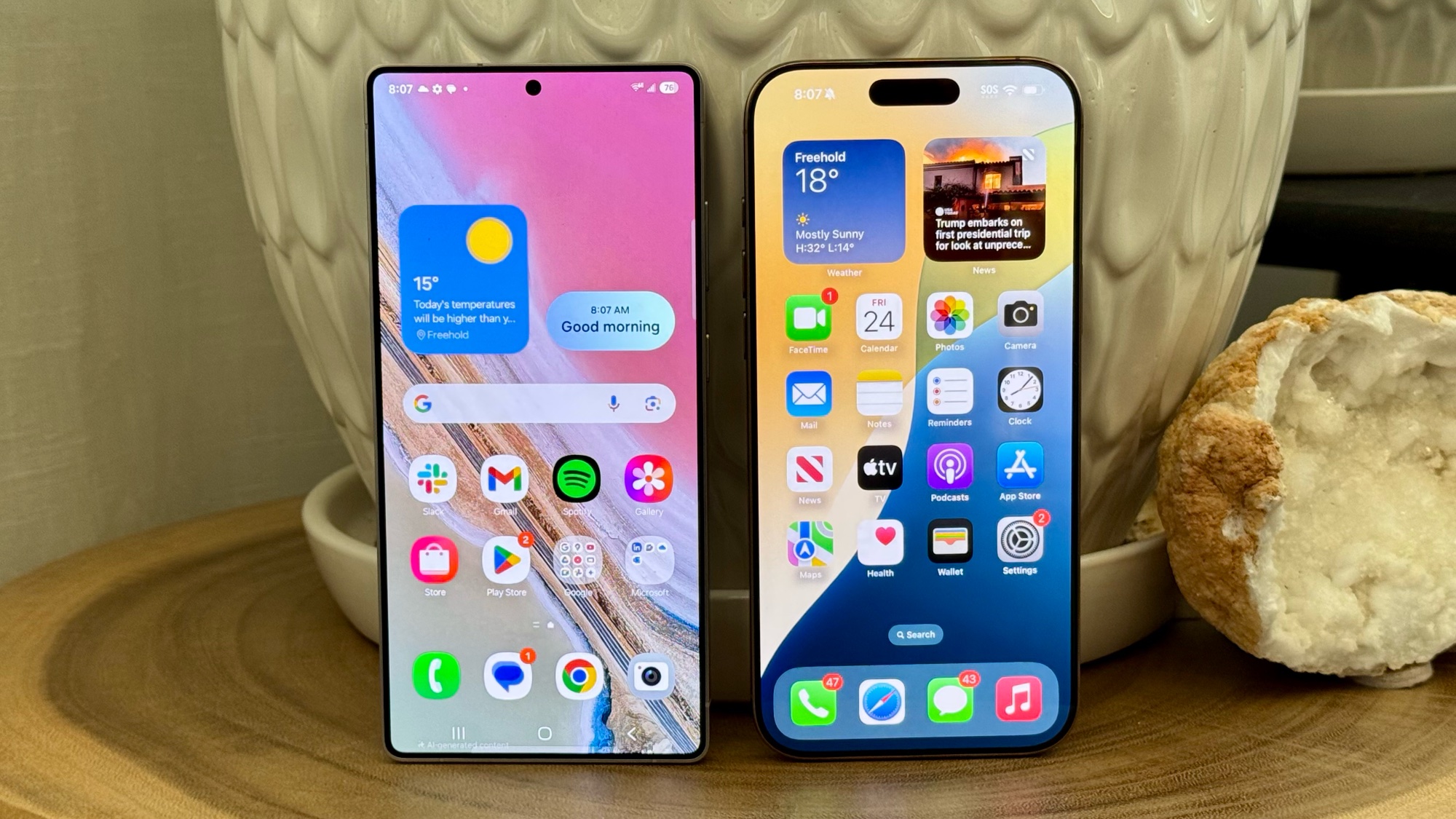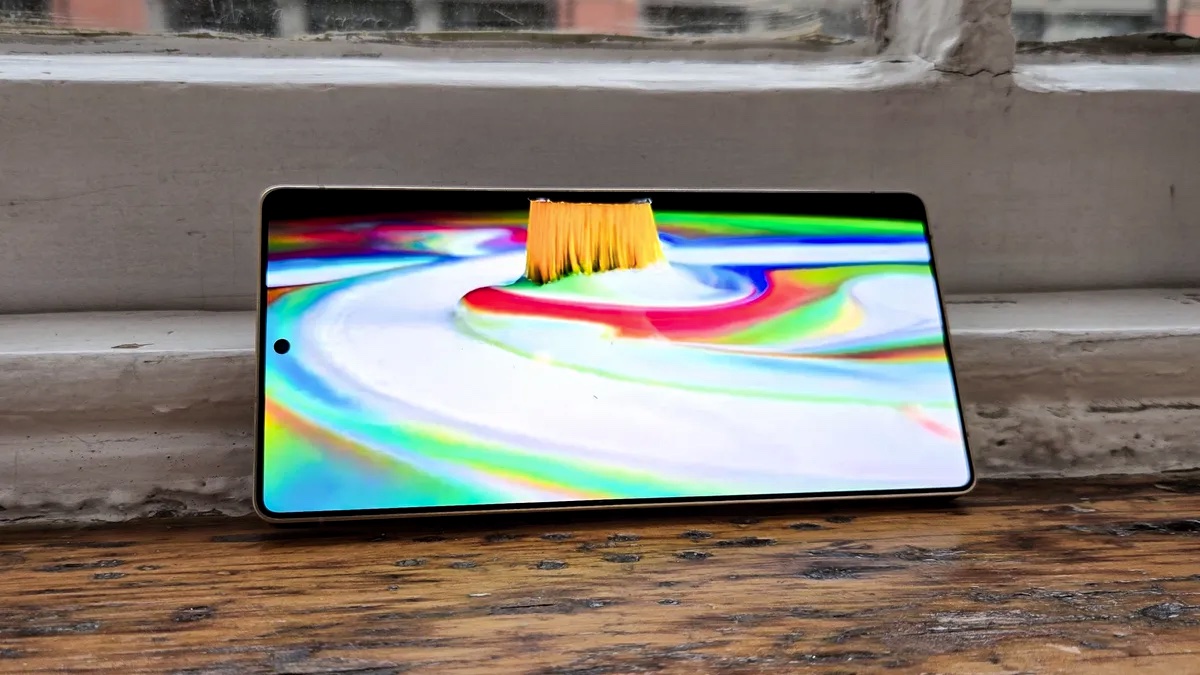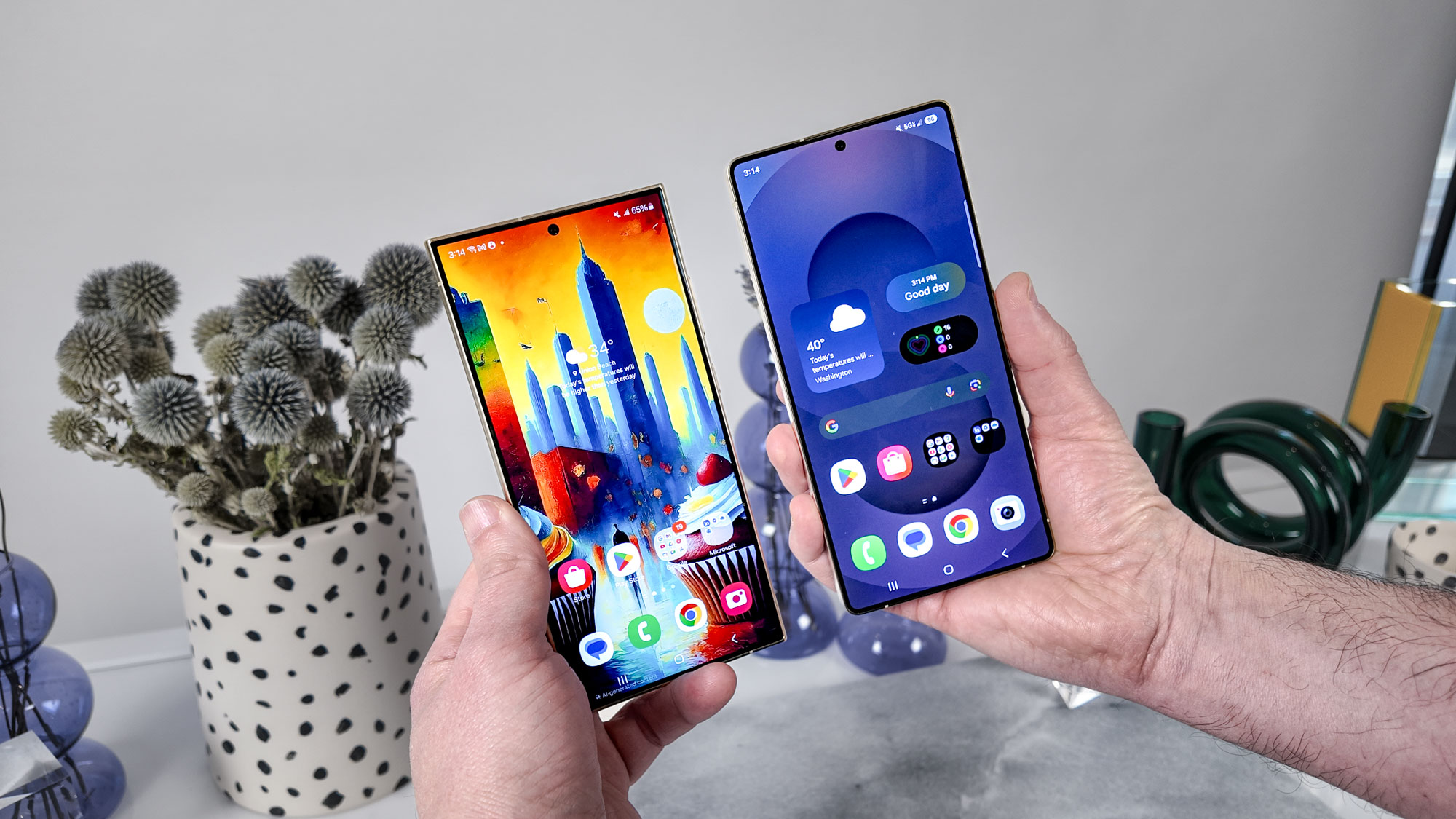Samsung Galaxy S25 Ultra vs iPhone 16 Pro Max displays tested — here's the winner
This is a new record for Samsung

One of the first things I looked at when I went hands-on with the Galaxy S25 Ultra was to check out its display side-by-side against last year’s model. I wasn’t as impressed by the Galaxy S24 Ultra compared to the previous models, mainly because the panel itself didn’t look quite as vivid. It didn’t help either when I discovered it was plagued by the Mura effect, which made it look grainy when the display’s brightness was lowered.
Nowadays, the displays on the best phones are mainly judged by how bright they get — and phone makers are constantly trying to improve on this. With the Galaxy S25 Ultra, Samsung again asserts that the display can reach a peak brightness of 2,600 nits.
That’s an ambitious mark, but I’ve seen other outlandish claims that exceed 3,000 nits. For the Galaxy S25 Ultra, it can’t afford to have the same subdued results as last year’s model. Here’s what I found out from testing the display.
Galaxy S25 Ultra display specs
| Row 0 - Cell 0 | Size (inches) | Resolution | Refresh Rate |
| Galaxy S25 Ultra | 6.9-inch AMOLED | 3120 x 1440 | 1 - 120Hz |
| Galaxy S24 Ultra | 6.8-inch AMOLED | 3120 x 1440 | 1 - 120Hz |
| Galaxy S23 Ultra | 6.8-inch AMOLED | 3088 x 1440 | 1 - 120Hz |
| iPhone 16 Pro Max | 6.9-inch OLED | 2868 x 1320 | adaptive 120Hz |
| Pixel 9 Pro XL | 6.8-inch OLED | 2992 x 1344 | 1 - 120Hz |
| OnePlus 13 | 6.82-inch OLED | 3168 x 1440 | 1 - 120Hz |
Above, you’ll see the breakdown of the Galaxy S25 Ultra’s display specs alongside the S24 Ultra and a few of its main rivals. You can see how 6.8 and 6.9 inches appear to be the sweet spot for today’s ultra premium phones, as well as 120Hz rates that give them their fluid looks.
Likewise, the resolution hasn’t changed at all with the Galaxy S25 Ultra, but it technically offers a lower pixel density count because of how it’s sporting a larger 6.9-inch display. I’m not too particular about resolution because QHD+ packs enough detail at those screen sizes.

What the specs don’t show is how Samsung reduces the bezel around the Galaxy S25 Ultra’s display. It’s a smidge thinner than what I see on the Galaxy S25 Ultra, but it’s more impressive when you consider how the S25 Ultra is narrower, thinner, and lighter.
Samsung Galaxy S25 Ultra brightness level
| Row 0 - Cell 0 | Max brightness (nits) |
| Galaxy S25 Ultra | 1,860 |
| Galaxy S24 Ultra | 1,363 |
| Galaxy S23 Ultra | 1,225 |
| iPhone 16 Pro Max | 1,553 |
| Pixel 9 Pro XL | 2,469 |
| OnePlus 13 | 1,104 |
Using a light meter, we’re able to record a peak brightness output of 1,860 nits, which easily exceeds the Galaxy S24 Ultra’s brightness of 1,363 nits. At the same time, it also beats the iPhone 16 Pro Max’s mark of 1,553 nits. This is clearly a big one for Samsung because this would make the S25 Ultra significantly easier to make out on sunny days than the iPhone 16 Pro Max — so you won’t have to shade it as much.
Sign up to get the BEST of Tom's Guide direct to your inbox.
Get instant access to breaking news, the hottest reviews, great deals and helpful tips.
I can’t stress enough about this improvement because it’s a 36% increase, which is more incredible when there was only an 11% increase in brightness between the S23 Ultra and S24 Ultra. This is the brightest screen from Samsung we’ve tested to date, but despite this achievement, it still can’t catch up to the blinding display of the Pixel 9 Pro XL. That phone still holds the record at 2,469 nits.
Outlook

Even though it’s not a record-setting mark, the 1,860-nit rating we got from the Galaxy S25 Ultra can’t be overlooked because of the tremendous improvement Samsung has made year-over-year. After the subdued look of last year’s display, I’m delighted that Samsung redeems itself in a big way.
Not only is it a larger screen with slimmer bezels, but this increase in brightness makes the overall panel much more vivid. It certainly caught my eyes at first glance and it’s just one compelling reason why it’s a much more satisfying update — more so when Samsung is keeping its price the same at $1,299.
More from Tom's Guide

John’s a senior editor covering phones for Tom’s Guide. He’s no stranger in this area having covered mobile phones and gadgets since 2008 when he started his career. On top of his editor duties, he’s a seasoned videographer being in front and behind the camera producing YouTube videos. Previously, he held editor roles with PhoneArena, Android Authority, Digital Trends, and SPY. Outside of tech, he enjoys producing mini documentaries and fun social clips for small businesses, enjoying the beach life at the Jersey Shore, and recently becoming a first time homeowner.
-
bobmeyerweb Subdued? LOL. Everything you write is hype and clickbait. I can read my S24U screen in bright daylight with sunglasses on. Nothing Subdued about it. And the colors are MUCH more realistic than the garish iPhone screens.Reply -
Sentry2 Reply
To be fair, the out of the box color calibration profile on the S24U did look quite a bit less vibrant than previous Ultras. Looked closer to an SRGB profile than prior S devices. That’s not to take anything away from it, as the new anti-reflective layer and the scratch resistance(7 on the Mohs scale instead of a 6), are a huge step in the right direction for phones in general and I’m glad someone is paying attention. iPhones since the 13 Pro have had great OLED panels (manufactured by Samsung & LG) with very accurate calibration profiles out of the box, not to mention iOS seamlessly switches between correct color profiles for the content being displayed. Hit the panel lottery with the 16PM as it has the cleanest OLED I’ve seen yet for dark shades of gray and panel uniformity…BUT, iOS 18 has been the biggest turd of the year for me personally, so I’m going going to switch to an S25U. In fact, iOS started going downhill with 17.bobmeyerweb said:Subdued? LOL. Everything you write is hype and clickbait. I can read my S24U screen in bright daylight with sunglasses on. Nothing Subdued about it. And the colors are MUCH more realistic than the garish iPhone screens.
Maybe John could tell us if the Mura/graininess at lower brightness levels is gone on the S25U. I read somewhere that it should be on this new panel. It was completely acceptable on the S24U I had and nowhere near the garbage ASUS has been putting out on their ROG phones. Previous Samsung panels were hit or miss too, but improved significantly with the Note 20U.
